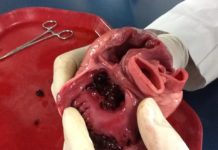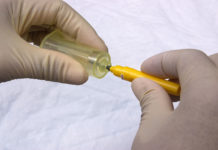
Alcohol increased pre-menstrual syndrome (PMS) severity by 45-79% finds new study
Drinking alcohol may be linked to pre-menstrual syndrome (PMS) suggests a study in the online journal BMJ Open.
Premenstrual syndrome includes mood swings, tender breasts, food cravings, fatigue, irritability and depression. Its severity can vary.
Spanish researchers estimate that around one in 10 PMS cases (11%) might be linked to alcohol intake. The cost of PMS in the US has been estimated at US$ 5000 per case every year. In India such data is not even available. However ballpark prevalence estimates say 20-32% of premenopausal and 30-40% women in the reproductive age group suffer PMS.
Women are likely to experience 3000 days of disabling symptoms during their reproductive lives
Women are likely to experience 3000 days of disabling symptoms during their reproductive lives. Studies have shown that PMS tends to be more severe among women who drink alcohol. But the cause effect relationship is not clear.
To try and find out more, the researchers therefore trawled research databases for relevant studies published up to May 2017. They found 19 from eight different countries, involving more than 47,000 participants.
Pooled analysis of the data from these 19 studies show that alcohol intake was associated with a 45% heightened risk of PMS. For heavy drinkers it rose to 79%.
While the design of the included studies precludes the ability to establish cause, the relatively large number, and the consistency of the results, suggest that alcohol may be associated with an increase in the risk of PMS.
“These findings are important given that the worldwide prevalence of alcohol drinking among women is not negligible,” the researchers wrote.
Globally, the proportion of women who drink alcohol is thought to be around 30 percent, with around one in 20 (6%) of those heavy drinkers. But in Europe and America the equivalent figures are higher, at almost 60 percent and over 12.5 percent, respectively.
“Based on the figures above and on our results, we estimate that 11% of the PMS cases may be associated to alcohol intake worldwide and 21% in Europe,” write the researchers. “Furthermore, heavy drinking may be associated with 4% of the PMS cases in the world and over 9% in Europe.”
They speculate that if the association is causal in nature, “eliminating heavy drinking in women would then prevent one in every 12 cases in Europe.”












